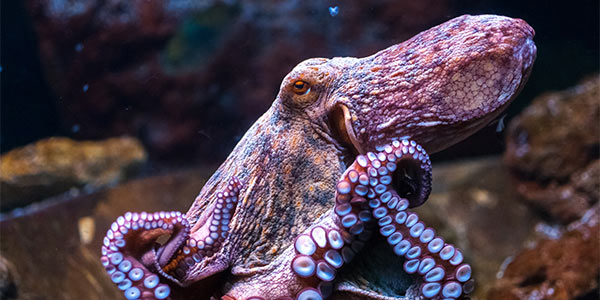Science is Fun Fridays!
Did you know an octopus has nine brains??
They have a central brain in their head that controls the nervous system, and also a small brain in each arm, which allows them to work independently toward the same goal.
Scientists have found that the octopus brain contains high levels of regulatory RNA molecules, which could help them develop lots of different neurons and greater neuronal complexity.
"The only comparable [microRNA] expansions happened, strikingly, in vertebrates. Thus, we propose that [microRNAs] are intimately linked to the evolution of complex animal brains."
MicroRNA regulate gene expression by binding to mRNA and preventing it from being translated to protein.
The team studied 18 tissues of the common octopus, expecting to find RNA editing behind the cognitive abilities. Instead, they found the miRNA as a contributing factor, most strongly expressed in nervous tissues and present in the brains of developing hatchlings.
While brain size and texture may vary, octopuses (octopi) are considered very smart. They use tools and are playful, they've even displayed long and short term memory. They may even dream when they sleep. During "active sleep" they have been seen to change their color, as if responding to a friend or a predator. They also twitch their muscles, contracting their suckers, and moving their eyes.




Comments
Post a Comment